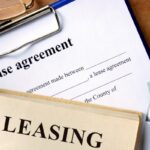I always advise property owners against agreeing to a Right of First Refusal (ROFR) in their cell tower lease. However, if a renegotiation necessitates it due to a significant rent increase, consider factoring that into negotiations. Typically, owners who don’t plan on selling their ground lease opt for ROFRs, but I’ve seen those folks eventually wind-up selling. Keep in mind that including a ROFR makes selling your property or lease more challenging in the future, reducing its lease value by at least two times the annual rent and revenue share.
Tower companies benefit greatly from including ROFRs in their leases, as it ensures they won’t lose the site to competitors and can leverage deals with asset acquirers. Some tower companies will waive ROFRs for deals with lease buyout companies, often extending leases for minor rent reductions or the same terms. These arrangements can also help tower companies leverage other sites acquired by the buyout companies.
ROFR deals are complex and may not be easily understood by property owners. If you’re considering selling a lease with a ROFR, it might make sense if you have a plan for the proceeds. Considering that your lease is locked up for a while with no future renegotiation opportunities, it may make sense to sell if you are a savvy investor. When you are getting ready to sell, it’s important to wait until you are near an increase, especially if you have a term increase. Patience is key, especially considering the 30-45 days tower companies have to respond to ROFRs. Some ROFRs include consent provisions that further complicate sales for property owners, emphasizing the need for legal review. In most cases, these are older folks that were pressured into signing an extension because of a worry the tower and monthly income would go away. It happens far too often in this industry.
Many third-party lease buyout companies avoid sites with ROFRs, knowing tower companies often match offers. This can result in lower offers for property owners, typically below the market multiple of 19x in the industry. Considering these factors, carefully weigh the pros and cons before agreeing to a ROFR in a lease renegotiation to avoid missing out on market deals in the future. Trusted negotiation partners are invaluable in such situations.












